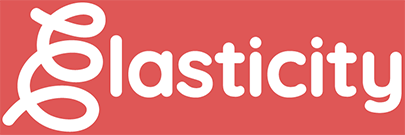In the last week, Facebook shared two major announcements regarding the content users see in their News Feed. Since then, the industry has been in UPROAR about how this is the end of times, Facebook sold us on one thing and then pulled the rug out from under us, and even that Mark Zuckerberg is actually an alien preparing to take over planet Earth. (The last one might be a stretch but the point is valid. Would make for quite a twist though…)
Let’s start with the two announcements, shall we:
Facebook Revamps News Feed to Focus on Friends and Family
On January 11, Facebook announced a major change to the signals it uses to show content in the News Feed (and eventually all products) to focus on content from friends that drives deep engagement. They want to move away from passive engagement (video views, article reads, quick Likes, etc.) and focus on interactions that drive long comments, shares, etc.
As part of this change, they will be further minimizing content from publishers and Pages and prioritizing content from friends. Even that will be scrutinized for positive engagements (think: dog photos over political memes).
Zuckerberg says his number one goal is to have a user leave the site feeling positively. In addition to thinking about his conscience, he’s also probably thinking about his wallet. Happier users mean more repeat visitors and reduces the chances of further scrutiny and potential fines from Congress over potential international meddling in our elections.
Facebook Begins Evaluating ‘Trustworthiness’ of News Content
On January 19, Facebook announced another major change to the News Feed. Facebook will now evaluate news content on three factors:
- News that is trustworthy
- News that people find informative
- News that is relevant to the local community
Again, Facebook and Zuckerberg have their eyes on making the platform a place where users feel safe and a platform that doesn’t allow the Russians to interfere with our democratic processes (again, perhaps).
What This Means for Users
Users will likely see a slow but steady change to the content in their News Feeds. I’ve heard rumors of people seeing similar changes to the Instagram algorithm where content that is five or more days old shows up at the top of the feed. Time will tell how users respond to the changes, but if history is any indication, users will be upset for a few days before accepting their new Facebook overlords.
What This Means for Brands and Publishers
Even if I were a doomsday prepper (I’m not), these changes would not have me doubling down on my supplies. Yes, this will impact organic reach even further. Yes, brands and publishers will have a harder time getting through the algorithm. But these changes will continue to reinforce two things that have been priority in recent years:
- Strong Content: For the organic content that does make it through this strict algorithm, it will need to be content that drives deep engagement. Quick likes or video views won’t be enough. Facebook did say that it would prioritize Live video over traditional video. Beyond that, we need to be driving commenting and shares to break through into users’ News Feeds. Combine this with Facebook’s push against flat out asking for engagement from users, brands and publishers need to get creative.
- Paid Media: More now than ever, paid media will be required for success on this platform. We will need to watch to see how this affects market rates going forward, but this is not new. If you haven’t been aligning some of your marketing dollars to paid social, now’s the time.
In addition, these changes continue to highlight the importance of a multi-channel strategy. After publishers have put most of their eggs in the Facebook basket for nearly a decade, hopefully this will wake up marketers to the realization that there are more platforms than Facebook. Even though the lion’s share of time spent in social happens on Facebook, there are real opportunities in other platforms and niche communities.
Last, I believe these changes will have positive gains for brands and publishers who are using social correctly. If you are creating compelling content, investing in community management and partnering with the right influencers, you will rise above the mediocre brands who have been checking the box on social media and moving on. Brands who center their strategy and content around engaging their followers with an equally strong distribution (paid media) plan will still be able to succeed in this new world on Facebook. Otherwise, there’s always Twitter.
Photo by Scott Rodgerson on Unsplash



